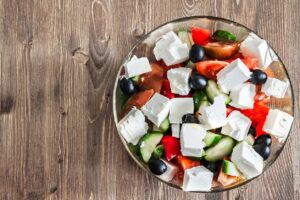I’m sure a lot of you hear about Macronutrients and I’m sure some of you probably roll your eyes hearing people in the fitness and health industry talk about them all the time. BUT I’m here to explain to you WHY they are so important.
Macronutrients consist of carbohydrates, proteins and fats. They are essential and can be detrimental to your health if you do not consume the right amount for your body. They affect your ability to digest and absorb food; hormone production; immunity; cell structure and function; body composition and metabolic function.
 It’s important to eat a variety of natural (complex) carbohydrates which are slow digesting and high fibre. Fibre cannot be produced in your body and so it’s important you are getting it from the foods you eat. Complex carbs include fruit and vegetables; legumes and root vegetables; beans and whole grains. If you are looking to gain weight/muscle mass, you should consume faster digesting, low fibre foods. But remember, everyBODY is different and some may have different effects in the body. (Simple carbs mainly for high-level athletes and those underweight)
It’s important to eat a variety of natural (complex) carbohydrates which are slow digesting and high fibre. Fibre cannot be produced in your body and so it’s important you are getting it from the foods you eat. Complex carbs include fruit and vegetables; legumes and root vegetables; beans and whole grains. If you are looking to gain weight/muscle mass, you should consume faster digesting, low fibre foods. But remember, everyBODY is different and some may have different effects in the body. (Simple carbs mainly for high-level athletes and those underweight)
You can find two types of carbohydrates, soluble and insoluble. I won’t go into too much detail here but your water-soluble carbs which are oats, beans, peas, nuts, dried beans, barley, flax, chia, oranges, blueberries, bananas, apples, artichoke, tomatoes and carrots. These aid in excreting bile acids and sex hormone metabolites. Insoluble carbs are found in plant cell walls such as celery, root vegetable, dark green leafy veg, fruit and veg skin, whole-grain seed hulls, seeds and nuts. This adds bulk to your stool which means… regular bowel movements every day!
Both insoluble and soluble carbohydrates help you to:
- Feel full longer;
- Lower blood lipids + cholesterol;
- Lower chance of colon cancer;
- Keep things moving in your GI Tract;
- Boost gut health.
Carbohydrates are important to consume with every meal (unless given instructions otherwise due to diabetes or other medical conditions). It is especially important to eat carbohydrates before + after your workout.
Now let us move onto fats! Including fats in your diet are important as they:
 Provide energy (most energy-dense macronutrient);
Provide energy (most energy-dense macronutrient);- Balance hormones (sex and corticosteroid in particular);
- Form cell membranes;
- Form brain and nervous systems;
- Transport fat-soluble vitamins (A, D, E + K)
- Give us two important Omegas – Linoleic (Omega 6) + Linolenic (Omega 3) which can only be found in foods.
There are two types of fats – saturated + unsaturated. Saturated fats include butter, animal oil and tapioca (coconut) and unsaturated fats include olive, avocado, nuts, flax, fish and hemp. Trans fats are something you want to avoid! They lower your HDLs; suppress the excretion of bile acids; increase our cholesterol production; compete with essential fats and can create and worsen essential fatty acid deficiencies. So when you’re checking the back of any labels, make sure trans fat is at 0.
You want to make sure you’re balancing your Omega 3’s and 6’s as they function opposite to each other. Omega 3’s are important for brain development; cardiovascular functioning; nervous functioning and immune health. Omega 6’s are important for dilating airways and blood vessels; reducing pain; preventing blood clots and are anti-inflammatory.
You can find healthy fats in flax, chia, hemp, walnuts, fish, algae, avocados, poultry, wild game, beef, pork, lamb, olives and extra virgin olive oil. Don’t avoid healthy fats! They are crutial in a balanced diet!
Lastly, proteins. Proteins are broken down into amino acids which are essential to the human body. We thrive off of aminos. They help us repair and build tissues, hormones, immune system; they help us recover from surgery, illnesses or injuries and they aid in losing weight as they keep us full for longer. Without it, we would suffer from poor digestion. The average person should be consuming about 0.8-2.2kg/lb of body weight per day.
 Proteins can be found in many meats, nuts, beans, seeds, tubers, legumes and protein powders (but ensure you are getting your protein from food first). If you are plant based, make sure you are eating about 1 cup of legumes or dry beans every day as they are rich in lysine, which decreases your chance of cold sores.
Proteins can be found in many meats, nuts, beans, seeds, tubers, legumes and protein powders (but ensure you are getting your protein from food first). If you are plant based, make sure you are eating about 1 cup of legumes or dry beans every day as they are rich in lysine, which decreases your chance of cold sores.
I know this is a lot of information to take in, but I also want to touch briefly on sustainable eating. We need to protect our earth and support our locals. Which is why I want you to consider a couple of things when shopping for foods:
- Try to get all foods from local business such as farmers markets and buy the fruits and veg in season;
- Cut down on packaging (less plastic and waste);
- Give your leftovers to animals;
- Composte and recycle scraps;
- Buy ONLY what you need – not what you think you may need;
- Plan your meals out properly – less waste.
We must all do our part to help the environment! We only get one world.
As you can see, macronutrients are vital to keeping us alive and healthy. If you have any questions regarding macronutrients or are unsure about how much protein, carbs and fats you should be eating every day, sign up for my 8 week nutrition program where I can help you and give your tips and tricks to better your health today!
Jess x

Recent Comments